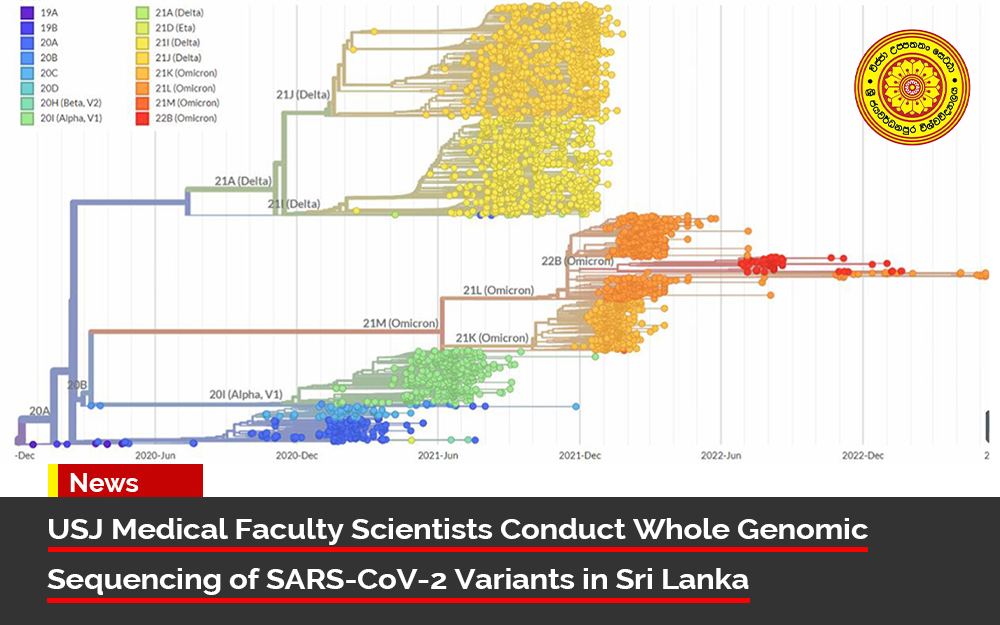The study involved sequencing 20 samples, including those referred from laboratories and samples collected for research purposes. The results revealed the presence of various SARS-CoV-2 variants, with the following distribution:
XBB.1.9.2: 3/20
XBB.1.9.1: 2/20
XBB.1.16.1: 2/20
XBB.1.16: 10/20
CH.1.1.1: 2/20
BN.1.2: 1/20
To provide a comprehensive overview, the research team has compiled several informative figures. Figure 1 depicts the timeline of the emergence and displacement of different variants in Sri Lanka, showcasing the changes in the SARS-CoV-2 variants over time. Figure 2 highlights the change in the relative frequency of Omicron sub-lineages, a variant of significant concern. Additionally, Figure 4 illustrates the sequencing of viruses carried out in Sri Lanka thus far, while Figure 5 presents the phylogenetic tree of all SARS-CoV-2 sequences identified in the country.To promote open access to this valuable data, the findings are available for public exploration through the link: https://nextstrain.org/
This significant achievement highlights the University of Sri Jayewardenepura’s commitment to scientific excellence and its invaluable contributions to combating the COVID-19 pandemic. The research conducted by the Allergy Immunology and Cell Biology Unit serves as a testament to the university’s dedication to advancing knowledge and promoting public health in Sri Lanka.









